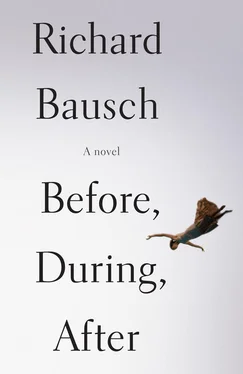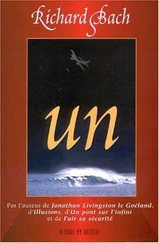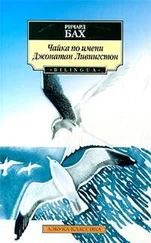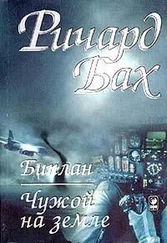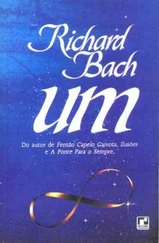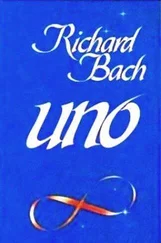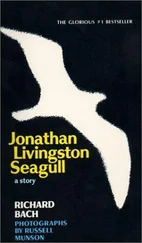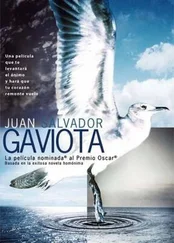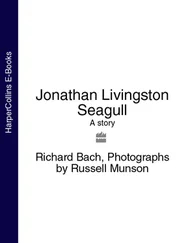“Okay. I believe you. All right? I’m sorry.”
She was close to screaming at the other, close to saying at the top of her voice what had happened later. She felt the hot urge to do so in the nerves of her throat.
“Really,” Constance said. “It’s none of my business anyway, like I said.”
“You had sand on your back,” said Natasha. “I saw it.”
“Okay, okay. Really. Let’s just stop this, now. Please.”
They were quiet for a long time.
Presently, Constance said, “What will we do today?”
“I don’t want to do anything but sleep. And be away from you.”
“No, now, come on, sweetie.”
Natasha said nothing.
“I said I’m sorry. I am sorry.”
“I’m staying here.”
“All day? You have an extra day. Maybe more.”
“I don’t feel like doing anything else. You do what you want.”
There was another pause. At last, Constance rose and went around into her own room. Natasha drifted on the edge of sleep and woke with a start and then drifted some more. She wanted very badly to be down in sleep. When she stirred, there was silence, no sound from the other side of the wall.
She got out of the bed and moved to the entrance of the balcony, pausing there. She saw the different nuances of blue at the horizon. There were no clouds, no hint of them anywhere. People were sunning themselves and playing in the shallows or sitting in the pockets of shade, picnicking, talking quietly. Two dark men were standing over a lit barbecue, waiting for the flames to die down. The life of the island was proceeding. Life elsewhere was going on. Her native country would honor the dead. The president would make another speech, visiting the ruins, the wreckage of so many assumptions about the world. It was too far away to imagine. She stepped out into the peace of this afternoon in Jamaica, with the sun shining in jade light through the palm fronds, and the air stirring softly, warm tropical breezes that carried the low repeating roar of the sea.
3
During the long train ride to Memphis, Faulk tried to sleep. There was no comfort to be had. Late in the night he made his way to the dining car and asked for a brandy. They had nothing but beer. He drank three beers in iced glasses, though the good clear taste disappeared after the first. He ordered a fourth but didn’t finish it. A young couple entered and took seats at the bar, nodding at him. He paid for the beer and wobbled slowly back to his compartment and lay down. The bed was narrow as a plank, the mattress so thin that he could feel the bands of metal supporting it.
He slept fitfully, the whole compartment pitching back and forth with the motion of the train, town lights gliding past the windows, other trains, seeming impossibly near, flashing by in a speeding instant, bells and blinking red lights at the crossings. The windows were black for a long time. And then they were full of sun, which made it stifling hot in that tight space. He’d lost track of time. He got up and went out and down to the dining car. There were no empty seats. A porter approached him and asked if he wanted to wait. But looking at the packed car with its faces showing the strain of the last two days, he decided that he wasn’t hungry. To be here felt too much like the bad journey down to Washington from New York. A quality of exhaustion hung in the air, the other passengers looking out at the rushing countryside. As he started out of the car a seat opened up near the door. He took it, realizing how tired he was. It was almost as if he collapsed into it. No, he told the porter, he had not decided what he wanted to eat. He asked for black coffee. Gazing out the windows at the countryside south of Cincinnati, he reflected on the fact that he had spent more time on trains now, just in the last two days, than he had spent on any other form of public transportation in his life. And he did not feel safe. And he wanted company. Something of the shock of those burning and collapsing buildings was only now beginning to weigh on him. He looked over at the thickset man across the aisle from him.
“We had the Renaissance,” the man said to him, “and then we had the Enlightenment, and they’ve always hated us for that.”
Faulk did not want to talk about it. “Awful,” he said to the man, hoping to leave it there.
The man was traveling with two young girls, the taller of whom pushed past his heavy knees and out into the aisle. She stood before Faulk. “My name is Sheila.”
“Sheila,” the man said. “Come here.”
“That’s all right,” Faulk told him. “Hello, Sheila.”
“How old are you?” Sheila asked him. Her eyes were the color of clear water in sunlight.
“I’m very old. How about you?”
“I’m going to be seven. We saw a catastrophe. We were on vacation in Washington, D.C., and we saw a catastrophe. Have you ever seen one of those?”
“Sheila, don’t bother the gentleman.”
“No, it’s fine,” Faulk said. “Really.”
“Have you ever seen a catastrophe?” the girl persisted.
“Well, yes.”
“Did you see what we saw?”
“No, ma’am. I wasn’t there.”
“Don’t you think it’s elegant that I know the word catastrophe ?”
“It certainly is.” Faulk smiled at her and then at her father. “I think it’s elegant that you know the word elegant .”
“I know a lot of words.”
“That’s wonderful. You can never know too many words.”
“I know the word fanatical , too. And theocracy . Do you know those words?”
“I do. But I’m so old. It’s excellent that you know them.”
“I just learned those two. My father said them and I learned them.”
“Sheila,” the girl’s father said.
“We were there at the catastrophe,” Sheila said. “We were going to the airport, and we saw a building on fire and smoke going way up in the sky. Way, way up. Way farther than anything we ever saw. So far. Smoke can be a catastrophe, can’t it.”
Faulk nodded at her and kept the smile.
“It scared me. Are you scared?” Sheila looked like she might begin to cry now.
“Sheila,” her father said. “Come here, honey.”
Faulk looked at him. “I was in New York.”
“Our flight home was canceled.”
“We live in Chicago,” Sheila said, sniffling. “We’re taking the train from Memphis.”
“Come up,” the man said, and pulled her onto his knee. The girl on the other side of him, probably four or five, said, “Daddy, I’m hungry.”
The girl named Sheila said, “You always whine when you have nothing to whine about.”
“Sheila.”
“She has nothing to whine about. We didn’t get a catastrophe.”
“Be still.” The man looked over at Faulk. “Tough to explain.”
“Yes.”
“You live in Memphis?”
“Yes.”
“New York on business?”
“A wedding that got canceled.”
“Yeah. Cancellations.”
The girls went on arguing, and the man murmured to them. Faulk got up from his seat and nodded at the man, then went to the entrance of the car and out, to the vestibule. Another man was standing there smoking a cigarette. The man wore a uniform — a dark blue coat and pants. Faulk pushed open the door into the next car and strode carefully in the rocking motion of the train to his compartment. Out the window there was a farmhouse and wide fields, rows of corn. He sat on the thin fold-up bed thinking about his country as he never had before. His own sighs came back to him from the walls, even with the rush and roar of the train, and he let the tears come.
4
Most of the day, Natasha kept to the room, and in the night she made herself walk out alone, along the shoreline. Just at the edge of the bath of light from the resort, she found a piece of driftwood a little smaller than a baseball bat lying in the sand and dry weeds. She carried it with her, tight in her fist. The night was peaceful and clear, and she watched the lights of a passing ship at the farthest line of the horizon. When she returned to the resort, she sat for a little while in one of the chairs on the veranda while the night breezes went over her. The susurration and clicking of the palms soothed her a little, though the whole scene also seemed to increase her sense of the uselessness of everything.
Читать дальше
